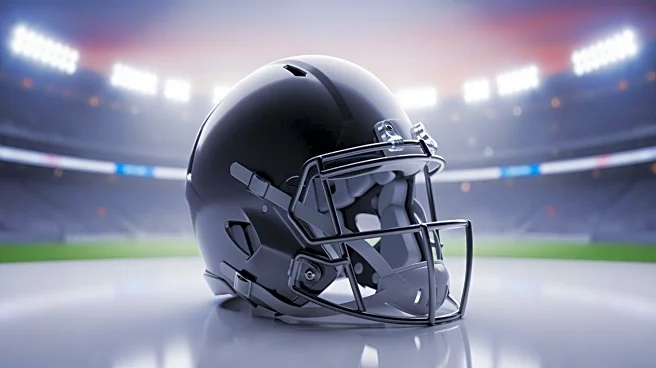What's Happening?
NFL Commissioner Roger Goodell has publicly defended the decision to feature Bad Bunny as the performer for the 2026 Super Bowl halftime show, despite facing conservative backlash. Goodell emphasized the NFL's
confidence in the choice, describing Bad Bunny as one of the leading and most popular entertainers globally. The decision was announced last month, and Goodell addressed the criticism by stating that selecting an artist for such a high-profile event often attracts some level of controversy. He assured that the performance would be exciting and unite viewers, highlighting Bad Bunny's understanding of the platform's significance.
Why It's Important?
The selection of Bad Bunny for the Super Bowl halftime show is significant as it reflects the NFL's commitment to diversity and inclusion in its entertainment choices. Bad Bunny, a Puerto Rican artist, represents a broader cultural shift towards embracing Latin music and artists in mainstream American events. This decision could influence future entertainment selections, potentially opening doors for more international and diverse performers. The backlash from conservative circles underscores ongoing cultural tensions in the U.S., where entertainment choices can become focal points for broader societal debates.
What's Next?
As the Super Bowl approaches, the NFL may continue to face criticism from various groups regarding its entertainment choices. However, the league is likely to maintain its stance, focusing on delivering a performance that appeals to a wide audience. Bad Bunny's performance could set a precedent for future halftime shows, encouraging the inclusion of artists from diverse backgrounds. The event may also prompt discussions on cultural representation in major U.S. events, potentially influencing other organizations to consider similar diversity in their entertainment programming.
Beyond the Headlines
The decision to feature Bad Bunny highlights the NFL's strategic move to engage with younger and more diverse audiences, reflecting broader demographic changes in the U.S. This choice may also impact the music industry, as it showcases the growing influence of Latin music in American culture. The controversy surrounding the selection could lead to discussions about the role of cultural representation in sports and entertainment, potentially influencing public policy and societal attitudes towards diversity.








